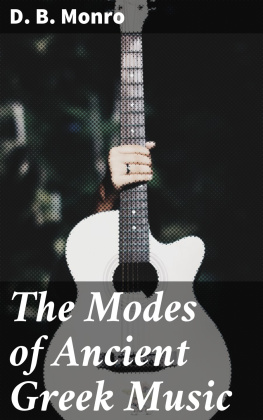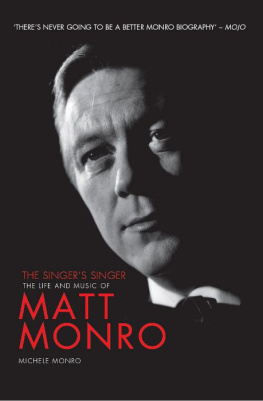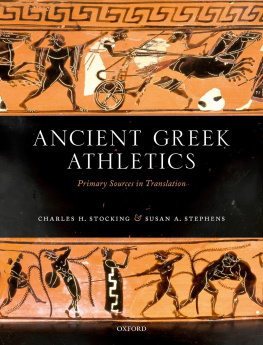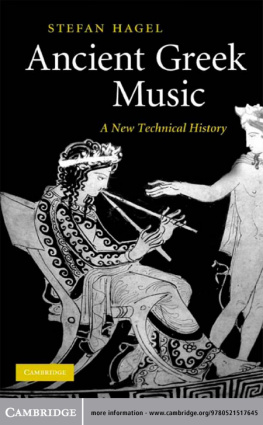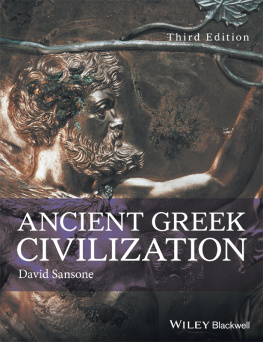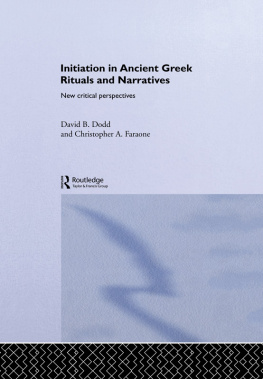D. B. Monro - The Modes of Ancient Greek Music
Here you can read online D. B. Monro - The Modes of Ancient Greek Music full text of the book (entire story) in english for free. Download pdf and epub, get meaning, cover and reviews about this ebook. year: 2019, publisher: Good Press, genre: Science. Description of the work, (preface) as well as reviews are available. Best literature library LitArk.com created for fans of good reading and offers a wide selection of genres:
Romance novel
Science fiction
Adventure
Detective
Science
History
Home and family
Prose
Art
Politics
Computer
Non-fiction
Religion
Business
Children
Humor
Choose a favorite category and find really read worthwhile books. Enjoy immersion in the world of imagination, feel the emotions of the characters or learn something new for yourself, make an fascinating discovery.
The Modes of Ancient Greek Music: summary, description and annotation
We offer to read an annotation, description, summary or preface (depends on what the author of the book "The Modes of Ancient Greek Music" wrote himself). If you haven't found the necessary information about the book — write in the comments, we will try to find it.
The Modes of Ancient Greek Music — read online for free the complete book (whole text) full work
Below is the text of the book, divided by pages. System saving the place of the last page read, allows you to conveniently read the book "The Modes of Ancient Greek Music" online for free, without having to search again every time where you left off. Put a bookmark, and you can go to the page where you finished reading at any time.
Font size:
Interval:
Bookmark:

The present essay is the sequel of an article on Greek music which the author contributed to the new edition of Smith's Dictionary of Greek and Roman Antiquities (London, 189091, art. Musica ). In that article the long-standing controversy regarding the nature of the ancient musical Modes was briefly noticed, and some reasons were given for dissenting from the views maintained by Westphal, and now very generally accepted. A full discussion of the subject would have taken up more space than was then at the author's disposal, and he accordingly proposed to the Delegates of the Clarendon Press to treat the question in a separate form. He has now to thank them for undertaking the publication of a work which is necessarily addressed to a very limited circle.
The progress of the work has been more than once delayed by the accession of materials. Much of it was written before the author had the opportunity of studying two very interesting documents first made known in the course of last year in the Bulletin de correspondance hellnique and the Philologus, viz. the so-called Seikelos inscription from Tralles, and a fragment of the Orestes of Euripides. But a much greater surprise was in store. The book was nearly ready for publication last November, when the newspapers reported that the French scholars engaged in excavating on the site of Delphi had found several pieces of musical notation, in particular a hymn to Apollo dating from the third century B.C. As the known remains of Greek music were either miserably brief, or so late as hardly to belong to classical antiquity, it was thought best to wait for the publication of the new material. The French School of Athens must be congratulated upon the good fortune which has attended their enterprise, and also upon the excellent form in which its results have been placed, within a comparatively short time, at the service of students. The writer of these pages, it will be readily understood, had especial reason to be interested in the announcement of a discovery which might give an entirely new complexion to the whole argument. It will be for the reader to determine whether the main thesis of the book has gained or lost by the new evidence.
Mr. Hubert Parry prefaces his suggestive treatment of Greek music by some remarks on the difficulty of the subject. 'It still seems possible,' he observes, 'that a large portion of what has passed into the domain of "well-authenticated fact" is complete misapprehension, as Greek scholars have not time for a thorough study of music up to the standard required to judge securely of the matters in question, and musicians as a rule are not extremely intimate with Greek' (The Art of Music, p. 24). To the present writer, who has no claim to the title of musician, the scepticism expressed in these words appears to be well founded. If his interpretation of the ancient texts furnishes musicians like Mr. Parry with a somewhat more trustworthy basis for their criticism of Greek music as an art, his object will be fully attained.
| Page |
| 1. Introductory. Musical forms called harmoniai or tropoi |
| 2. Statement of the question. The terms Dorian, Phrygian, Lydian, &c. |
| 3. The Authorities. AristoxenusPlatoAristotleHeraclides Ponticus the Aristotelian Problems |
| 4. The Early Poets. PratinasTelestesAristophanes |
| 5. Plato. The harmoniai in the RepublicThe Laches |
| 6. Heraclides Ponticus. The three Hellenic harmoniaithe Phrygian and Lydian the Hypo-dorian, &c. |
| 7. AristotleThe Politics. The harmoniai in the Politics |
| 8. The Aristotelian Problems. Hypo-dorian and Hypo-phrygian |
| 9. The Rhetoric. The harmonia of oratory |
| 10. Aristoxenus. The topoi or keys |
| 11. Names of keys. The prefix Hypo-the term tonos |
| 12. Plutarch's Dialogue on Music. The Platonic modesLydianMixo-lydian and Syntono-lydian the Mixo-lydian octavethe keys of Sacadastonos and harmonia |
| 13. Modes employed on different instruments. Modes on wind-instrumentson the water-organ on the citharaon the flute |
| 14. Recapitulation. Equivalence of harmonia and tonos |
| 15. The Systems of Greek music. The musical System (systma emmeles) |
| 16. The standard Octachord System. The scale in Aristotle and Aristoxenus |
| 17. Earlier Heptachord Scales. Seven-stringed scales in the ProblemsNicomachus |
| 18. The Perfect System. The Greater and Lesser Perfect Systems Aristoxenusenlargement of the scaleTimotheus Pronomusthe Proslambanomenosthe Hyperhypat |
| 19. Relation of System and Key. The standard System and the 'modes' the multiplicity of harmoniai |
| 20. Tonality of the Greek musical scale. The Mes as a key-notethe close on the Hypatarch in the Metaphysics |
| 21. The Species of a Scale. The seven Species (schmata, eid) of the Octaveconnexion with the Modes |
| 22. The Scales as treated by Aristoxenus. Advance made by Aristoxenusdiagrams of the Enharmonic genusreference in Plato's RepublicAristides Quintilianusthe Philebus |
| 23. The Seven Species. Aristoxenusthe Introductio Harmonica |
| 24. Relation of the Species to the Keys. Use of the names Dorian, &c.treatment of musical scales in AristoxenusSpecies in the different genera |
| 25. The Ethos of Music. Regions of the voicebranches of lyrical poetry kinds of ethos |
| 26. The Ethos of the Genera and Species. Ethos depending on pitchon the genus |
| 27. The Musical Notation. The instrumental notesoriginal form and date |
| 28. Traces of the Species in the Notation. Westphal's theory |
| 29. Ptolemy's Scheme of Modes. Reduction of the Modes to sevennomenclature according to value and according to position |
| 30. Nomenclature by Position. The term thesis in Aristoxenus in the Aristotelian Problems |
| 31. Scales of the Lyre and Cithara. The scales on the lyreon the cithara (viz. tritai, tropoi, parypatai, lydia, hypertropa, iastiaioliaia) |
| 32. Remains of Greek Music. The hymns of Dionysius and Mesomedesinstrumental passages in the AnonymusMr. Ramsay's inscription melody and accentfragment of the Orestes |
| 33. Modes of Aristides Quintilianus. The six Modes of Plato's Republic |
| 34. Credibility of Aristides Quintilianus. Date of Aristidesgenuineness of his scales |
| 35. Evidence for Scales of different species. The Hypo-dorian or common speciesthe Dorianthe Mixo-lydianthe Phrygian and the Hypo-phrygian Aristotle on Dorian and Phrygianthe dithyramb |
| 36. Conclusion. Early importance of genus and key onlychange in Ptolemy's time in the direction of the mediaeval Tones |
Font size:
Interval:
Bookmark:
Similar books «The Modes of Ancient Greek Music»
Look at similar books to The Modes of Ancient Greek Music. We have selected literature similar in name and meaning in the hope of providing readers with more options to find new, interesting, not yet read works.
Discussion, reviews of the book The Modes of Ancient Greek Music and just readers' own opinions. Leave your comments, write what you think about the work, its meaning or the main characters. Specify what exactly you liked and what you didn't like, and why you think so.

